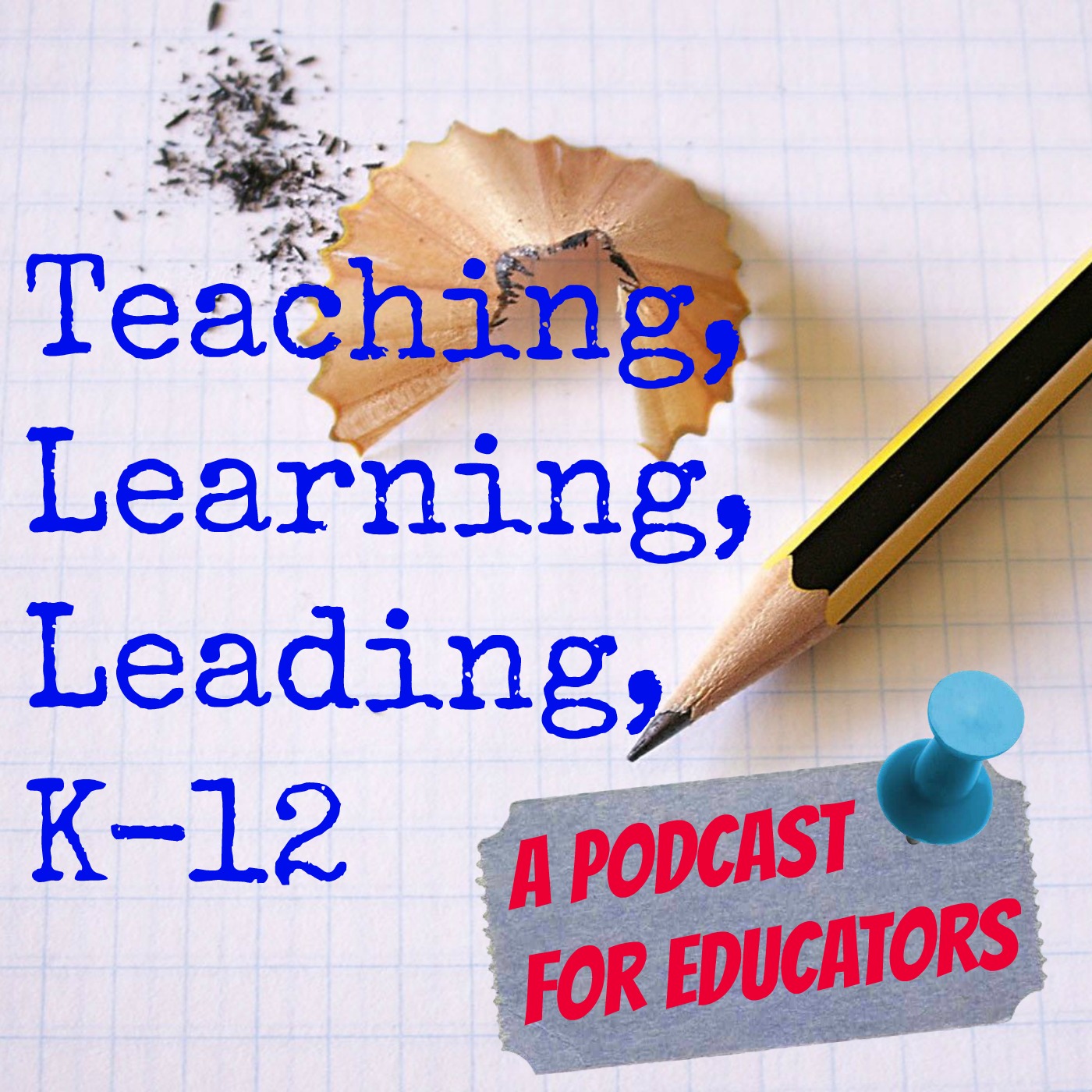Episodes
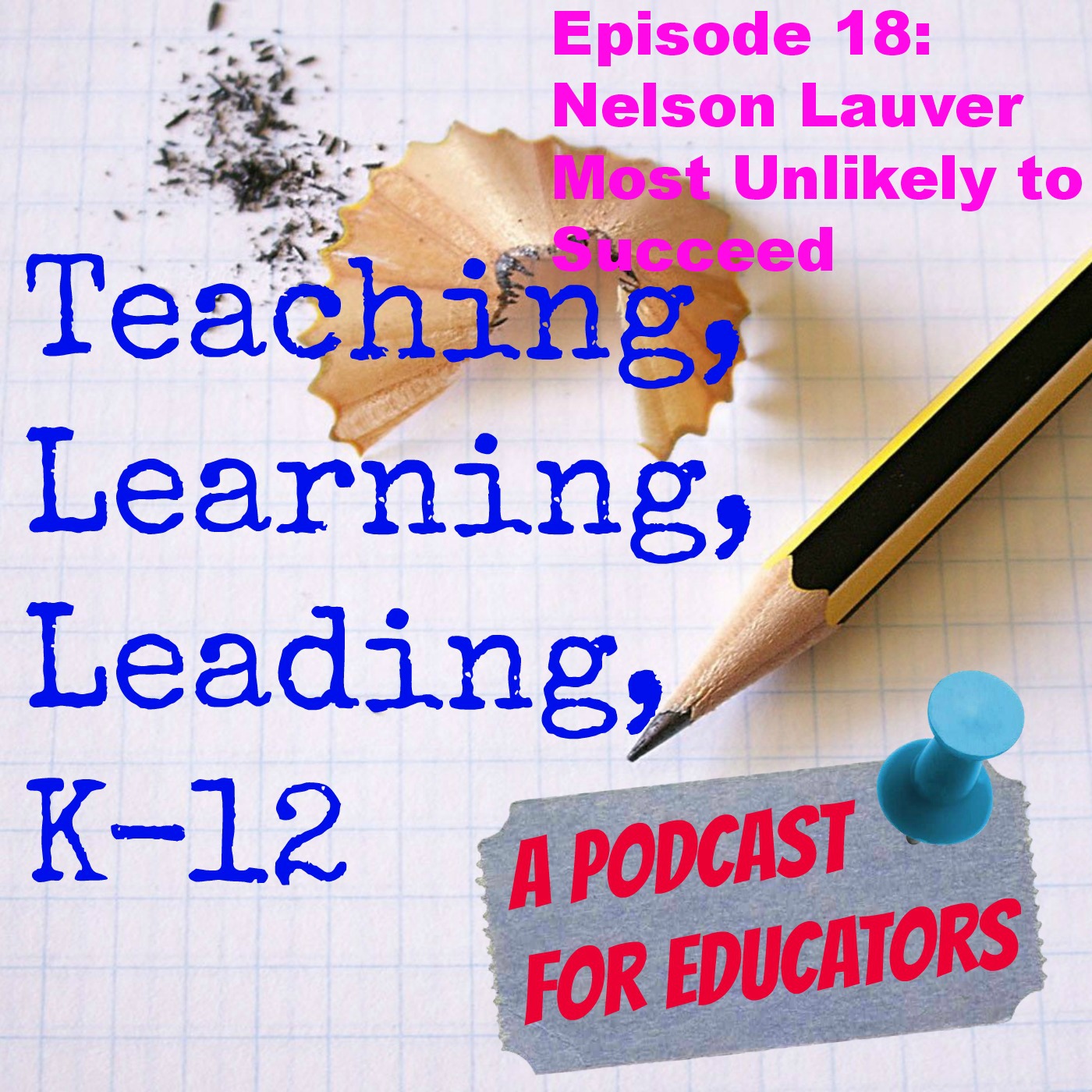
Thursday Apr 17, 2014
Thursday Apr 17, 2014

Nelson Lauver learned at the age of 29 that he was dyslexic.
Unfortunately, throughout his school experience no one knew this. As he struggled in school, he had to face a choice…be the dumb kid or be the bad kid. He chose to be the bad kid.
As he progressed through each grade what was really happening was that they were promoting him to get him out of their classes and eventually out of the school. He graduated 104th out 104 students.
Nelson and I talk about his experiences as a kid and as a young man trying to hold down a job.
Nelson has the following statement on his website: “A better world starts with the courage to believe you have something to contribute.” He has an amazing story and explanation surrounding this wonderful thought! As you listen to him, you will say, “You know…I think that he is talking to me…that he is telling me that I could contribute to this world…”
His memoir will touch your heart and make you wish that you could have been there to help him.
In response to this…He says that he can only move forward and take these experiences and use them for good.
My favorite part of our talk is when he starts talking about…Don’t give up on that kid!
After you listen to his story, I hope that you will take time to check out his website and look at his foundation and the work that he is doing to help promote literacy.
Also, listen to his wonderful talks under the link “audio stories.” You will not be disappointed.
His memoir is the winner of three book awards….
Gold Medal: Book of the Year, Independent Publisher Association 2011
Gold Medal: Inspirational Category Winner, INDIE Book Awards 2011
Silver Medal: Memoir Category INDIE Book Awards 2011
Find out more information about Nelson at his website…
www.americanstoryteller.com
You can order his memoir at Amazon. Click on the title to go to that page. Most Unlikely to Succeed

Length 47:06
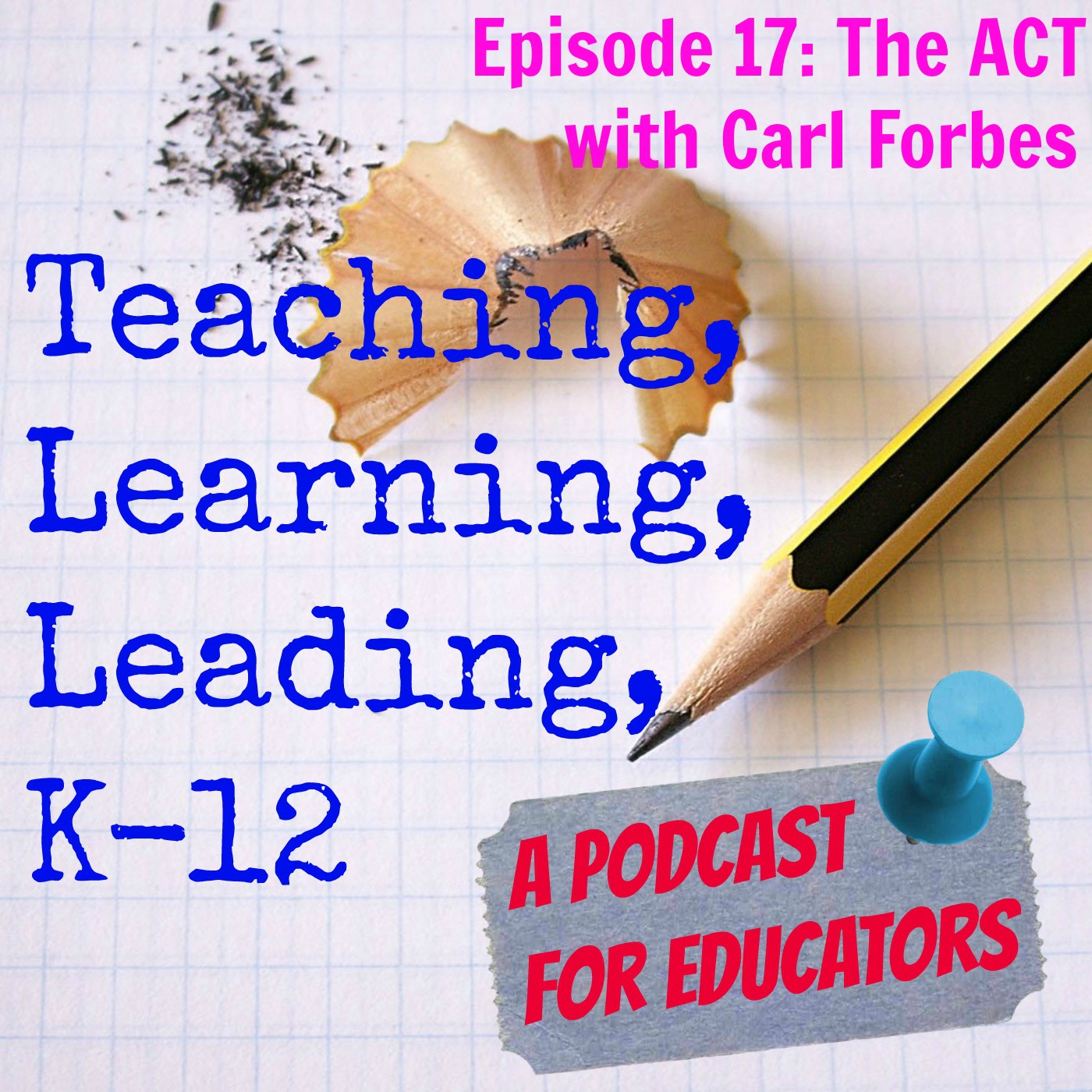
Wednesday Apr 09, 2014
Episode 17: The ACT with Carl Forbes
Wednesday Apr 09, 2014
Wednesday Apr 09, 2014
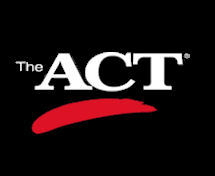
Carl has been working at The ACT now for the last eight years and is assigned to both secondary and post-secondary schools.
He helps secondary schools understand what their data is telling them and how to respond.
With post-secondary schools he assists them in looking at the student data with a focus on what admissions and scholarship decisions could be made from that data.
We discuss everything from understanding about the organization known as ACT, what the organization offers besides the college entrance test, what the ACT test scores mean, and what the fundamental differences are between the ACT and the SAT.
Carl states, “The ACT is focused on college and career readiness but also work preparedness.”
He explains the ACT standards and benchmarks and what they mean to an educator, parent, and a student taking the test. As Carl recalls, These components help “you understand what the scores on the ACT tell you about what you are ready to do.”
He also shared that there are ACT apps that students can use with their Smart phones and tablets.
We had an awesome conversation!
I think that you will learn so much whether a teacher, administrator, student, or parent you will want to listen again and then share this podcast with others. You will also want to take time to explore the ACT on the web.
www.act.org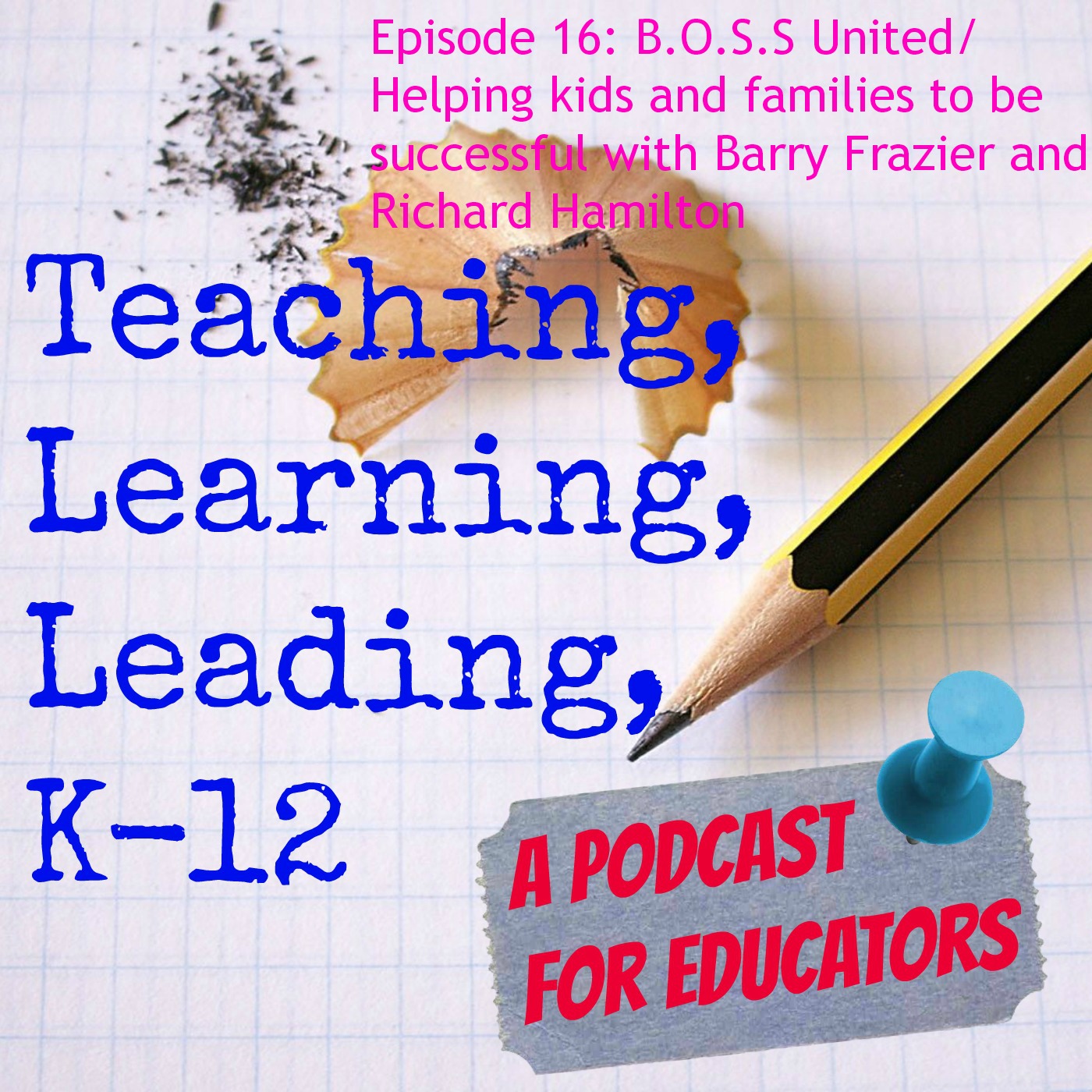
Wednesday Mar 26, 2014
Wednesday Mar 26, 2014

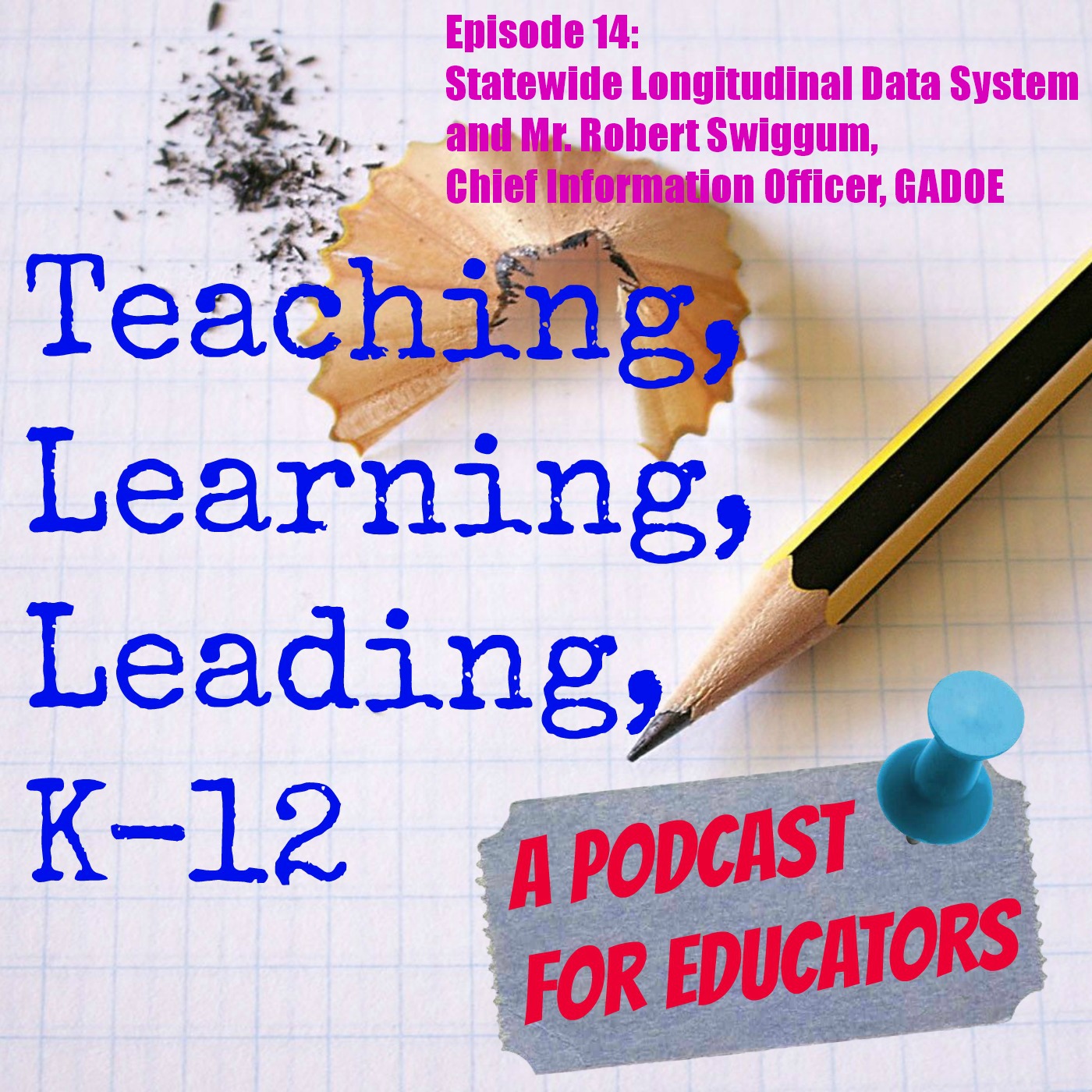
Sunday Mar 16, 2014
Sunday Mar 16, 2014
The State of Georgia has a Statewide Longitudinal Data System. What's that? You don't know what that means?
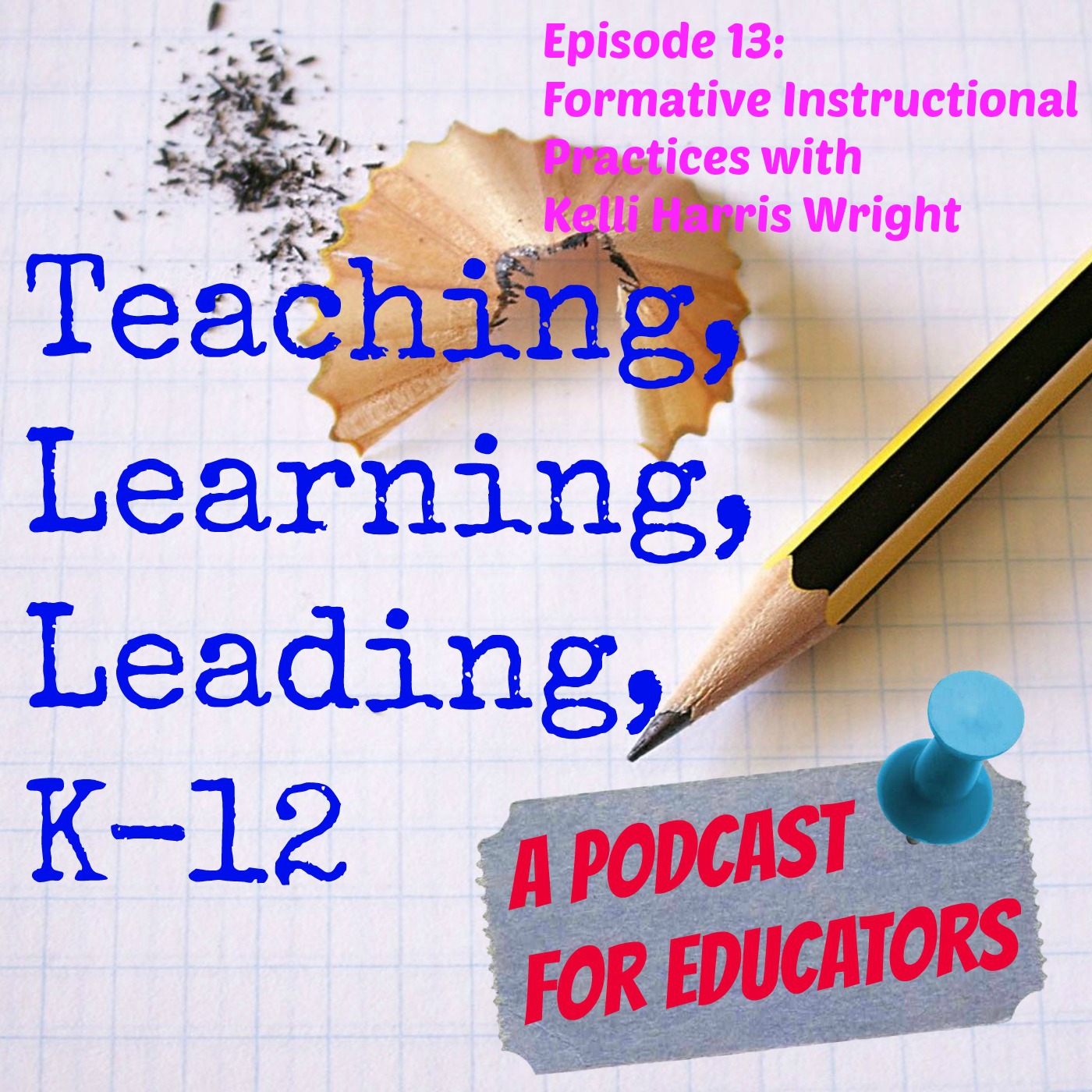
Thursday Mar 06, 2014
Episode 13: Formative Instructional Practices with Kelli Harris Wright GADOE
Thursday Mar 06, 2014
Thursday Mar 06, 2014
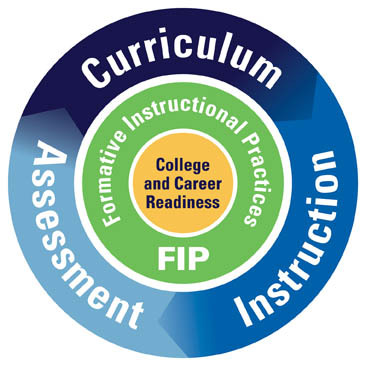
Kelli is a recently retired public educator. She was a special education and general education teacher. She also served in many different capacities within public school systems. Her most recent role, prior to retiring and going to work for the Georgia Department of Education, was as the Director of K-12 Teaching and Learning for a large Atlanta school district. She now oversees the FIP or Formative Instructional Practices program which falls under the Division for Assessment and Accountability at the DOE.
FIP is based upon the work of Rick Stiggins, Jan and Steve Chappuis, and Judith Arter. According to Kelli, “It focuses on the formal and informal methods that teachers and students collect information about student learning. It is about the use of the information that is collected.”
Formative Assessment helps teachers to understand the strengths and weaknesses of their students. The collected information then enables the teachers to modify their instructional practices to address the needs of the kids.
One aspect of this program is that the teachers learn how to create learning targets based upon the standards for the unit content. These help the teacher understand what it is that needs to be taught.
Formative assessment is purposeful. The teacher creates activities that provide information about the understandings of the students. As a result, these activities typically are not graded and should not be graded. It shows what the students know or don’t know therefore, a grade cannot be administered.
The actual training for teachers happens through professional learning networks, overview sessions, and on-line modules. There are five on-line modules for teachers.
1. Overview of the Research about Formative Assessment
2. Learning Targets
3. Ways to Collect Evidence of Student Learning
4. Analyzing the Evidence of Student Learning/ Effective Feedback
5. Student Ownership of Learning/Peer Feedback
There are two additional modules: One for leadership personnel and another for coaches and teacher leaders.
Kelli recommends three books to help with understanding formative assessment:
Seven Strategies of Assessment for Learning
Jan Chappuis, Pearson Assessment Training Institute
©2010 • Pearson • Paper, 272 pp
Published 03/01/2009
Assessment Balance and Quality: An Action Guide for School Leaders, 3/E
Steve Chappuis, Carol Commodore, Rick J. Stiggins, Pearson Assessment Training Institute
Pearson • Paper, 240 pp Published 03/02/2010
Formative Assessment and Standards-Based Grading
Robert J. Marzano, Publisher: Marzano Research Laboratory
November 11, 2009
You can find more information about Georgia’s use of FIP at www.gadoe.org/fip or simply google Georgia FIP.
You can contact Kelli at
Phone: (404) 463-5047
Fax: (404) 656-5976
Email: Kharris-wright@doe.k12.ga.us
Length 34:09

